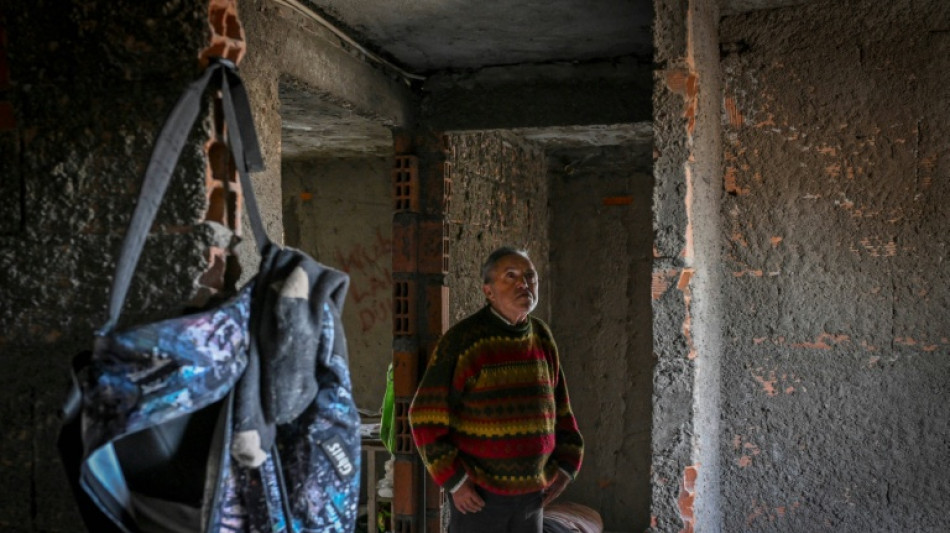

Renters struggle to survive in Portugal housing crisis
With sky-high rents beyond his modest pension, Antonio Lemos has no choice but to live in an abandoned house in Lisbon without electricity or running water as Portugal's perennial housing crisis spirals.
The former kitchen assistant, 80, has never found a stable home since foreign investors bought his apartment and has placed his hopes on a charitable institution to find a solution.
"How can you pay a rent of 400 or 500 euros for a room?", asked Lemos, whose monthly pension barely amounts to 500 euros ($580). "Age is catching up, and I'm scared."
Successive governments of all political stripes have tried and failed to solve the problem, according to Luis Mendes, a researcher at the University of Lisbon's Institute for Geography and Territorial Organisation.
"Year after year, real estate breaks new records," Mendes told AFP.
The market spike began during the eurozone financial crisis in 2011, when the country attempted to resuscitate its stricken economy by attracting foreign capital through so-called "golden visas".
The scheme offered visas to foreigners who invested in real estate and tax advantages to retirees or globe-trotting digital nomads but is viewed as having contributed to the problem.
Housing prices in Portugal have jumped 124 percent since 2015, well above the EU average of 53 percent, according to Eurostat.
The current centre-right government has made tackling the crisis a priority, but in the first three months of 2025 prices spiked by more than 16 percent, according to the Portuguese national statistics institute.
Falling interest rates and public guarantees for young people's mortgages, a measure introduced by the government last year, has driven the latest increase.
A group campaigning for the right to housing has called for protests this weekend in a dozen cities.
- 'Unacceptable' -
Similar to neighbouring Spain, public housing only represents two percent of households and many properties are converted into short-term holiday lets in the popular tourist destination.
Renters like Carlos are bearing the brunt.
The municipal gardener, who declined to give his surname, has been living for five years in a freight container surrounded by building sites in the Portuguese capital.
A basic mattress, a handful of personal belongings and some birds in a cage to keep him company make up the interior of his humble abode.
The 55-year-old used to live with his mother, but after her death the lease was cancelled and he found himself homeless overnight.
"I have found nothing at less than 800 euros. To have a salary and not be able to pay rent is unacceptable!" Carlos, whose income reaches around 1,000 euros, told AFP.
In a country where more than 70 percent of the population own their home, the new centre-right government that emerged victorious from May's snap election intends to build almost 60,000 new social homes.
It also plans to simplify public aid for renters, convert vacant public buildings and offer fiscal advantages in a bid to accelerate renovation and construction.
But for Mendes, "it is not with more homes that this crisis will be solved" because it risks "overheating the market".
The Lisbon renters' association has criticised "the illusion of supply as the only solution" and singled out a "lack of regulation and political courage".
The European Commission has suggested Portugal regulate rents to protect the most affected groups of people or introduce more controls for short-term tourist lets.
F.Busch--BVZ




